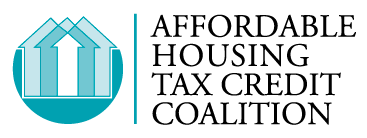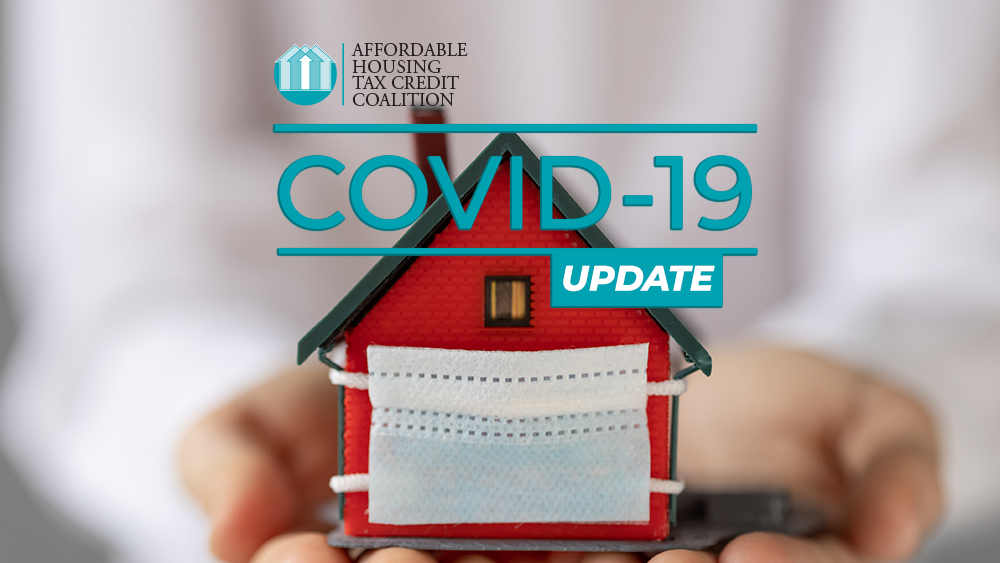AHTCC Calls on Congress and Administration to Provide Critical Affordable Housing Relief
In an op-ed in Affordable Housing Finance, AHTCC Executive Director Emily Cadik calls on Congress to provide legislative and regulatory affordable housing relief, including a number of flexibilities specific to the Housing Credit.
“In just the past month alone, 16 million people and counting are out of work, making affordable housing more critical than ever. And while the Low-Income Housing Tax Credit is a proven solution that is primed to fill the affordable housing shortage, our ability to build and preserve these homes is also facing barriers brought on by the current crisis,” explains Cadik. “Without legislative and regulatory intervention, many Housing Credit properties currently in service and in the construction and development pipeline face threats to their feasibility, limiting our ability to contribute to the economic recovery that will be needed.”
Cadik highlights several key policy priorities to ensure the Housing Credit’s success during and beyond the COVID-19 crisis: extending certain Housing Credit program deadlines, setting a minimum 4 percent Housing Credit rate, expanding the 9 percent Housing Credit allocation, and allocating substantial additional funding to the HOME. Learn more about these proposals below.
AHTCC and Partners Recommend Legislative Proposals for COVID-19 Relief and Recovery
As the nation’s primary tool for developing and preserving affordable housing, the Housing Credit is essential to provide affordable homes for those struggling from economic insecurity brought on by the COVID-19 crisis. However, the Housing Credit is facing several barriers brought on by the crisis, including construction labor shortages and delays, broken supply chains, financing gaps, and other unforeseen obstacles, and is in need of accommodations to ensure its ability to continue providing the affordable homes that are needed now more than ever.
To provide both immediate emergency relief and to assist in the future economic recovery, the AHTCC and our ACTION Campaign partners are advocating for the following policies as part of COVID-19 response legislation.
Legislative Priorities for Immediate Emergency Relief
We are urging Congress to immediately consider the following policies:
Enact a minimum 4 percent Housing Credit rate for buildings placed in service after January 20, 2020 (the beginning of the COVID-19 “incident period” as determined by the Federal Emergency Management Administration).
- Enacting a minimum 4 percent Housing Credit rate would make critically-needed affordable housing developments financially feasible in light of the reduction in the credit rate to a historically low 3.12 percent, brought on by the recent cuts to federal borrowing rates. Additionally, a minimum 4 percent rate would provide parity to the 9 percent Housing Credit rate, for which Congress first enacted a minimum rate during the 2008 economic crisis.
Allow more developments to access 4 percent Housing Credits by lowering the “50 percent test” to 25 percent for buildings placed in service after January 20, 2020.
- Lowering the threshold of private activity bond financing required to access “4 percent” Housing Credits would stimulate additional affordable housing production. The change would also provide needed flexibility to overcome issues impacting the availability of bond financing, such as delays and increased costs due to the COVID-19 crisis, as well as private activity bond volume cap constraints in many states.
Allocate substantial additional funding to the HOME program to be used for rental assistance, operating expenses, and other emergency measures.
- This flexible funding would help stabilize low-income families, cover increased operating costs associated with addressing COVID-19 related expenses, replenish operating reserves that are being depleted as cash flow from rent declines, and stimulate the preservation and production of additional affordable homes.
Regulatory Priorities for Immediate Relief
As the COVID-19 crisis significantly impacts and in many cases upends financing and construction, many Housing Credit developments are in jeopardy of missing key program deadlines. The AHTCC and more than 228 other organizations signed onto a letter urging the Internal Revenue Service (IRS) to enact a set of ten regulatory accommodations, requested by the National Council of State Housing Agencies (NCSHA), including deadline extensions, compliance and review moratoriums, a suspension of changes to compliance monitoring, and a request for guidance on the treatment of property amenity closures due to social distancing policies.
Legislative Priorities for Long-Term Economic Recovery
As Congress considers future policies to promote economic recovery, we propose to:
Increase the annual 9 percent Housing Credit allocation by 50 percent, phased in over two years at 25 percent per year, and adjusted for inflation, beginning in 2021.
- Increasing the annual 9 percent Housing Credit allocation would finance hundreds of thousands of affordable homes for low-income households in much more dire need of affordable housing as a result of the economic crisis brought on by COVID-19.
Provide additional basis boosts if needed for the financial feasibility of the property:
- (a) 30 percent basis boost for developments financed using Multifamily Private Activity Bonds,
- (b) 50 percent basis boost for developments serving extremely low-income tenants,
- (c) 30 percent basis boost for developments in rural areas, and/or
- (d) 30 percent basis boost for developments in Native American communities.
- Providing basis boosts would supply needed equity for developments that would not otherwise be financially feasible.
The AHTCC will continue to advocate for policies to strengthen our affordable housing delivery system at every opportunity. For additional information about the federal COVID-19 response as it relates to the Housing Credit, please see our resource page. We will continue to update the page as more information becomes available.



Comments are closed.